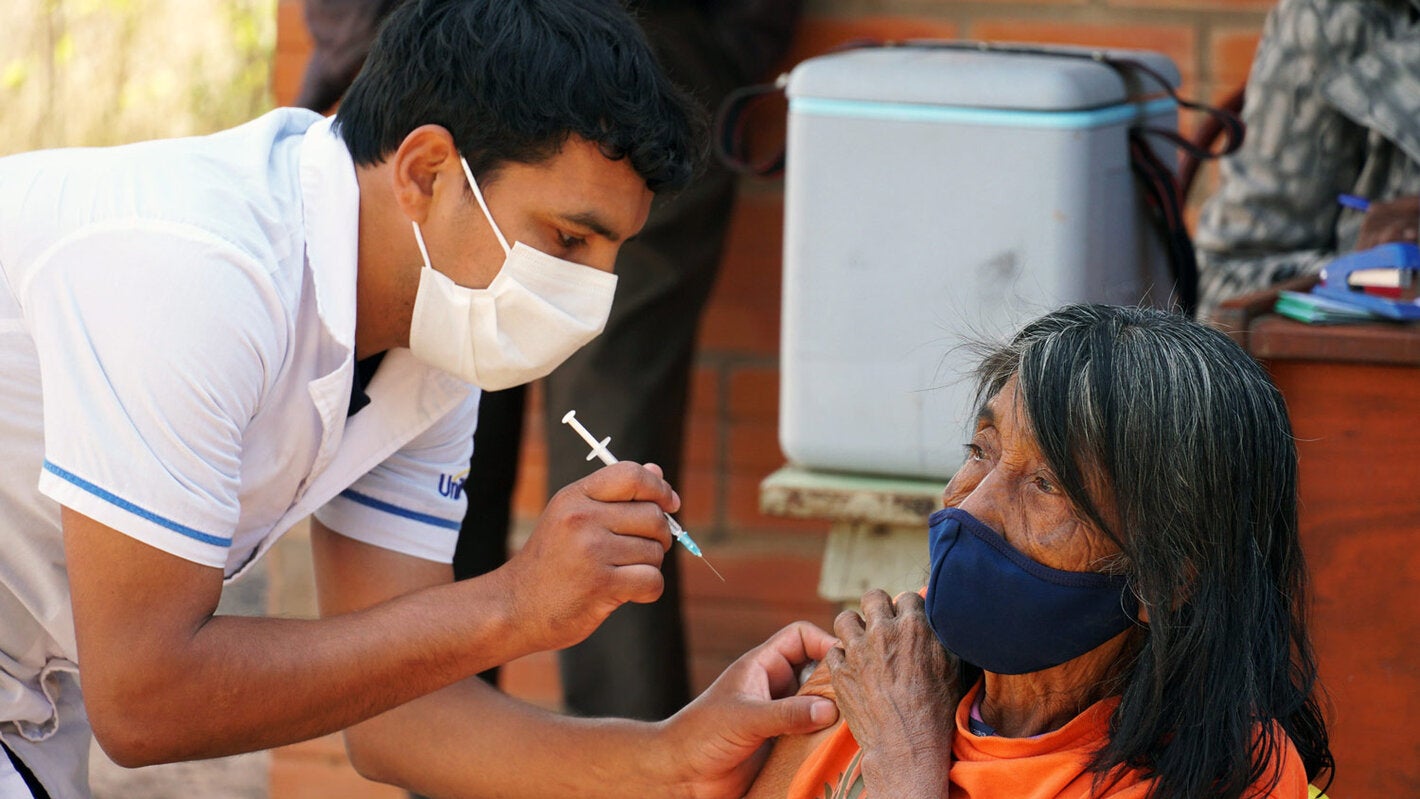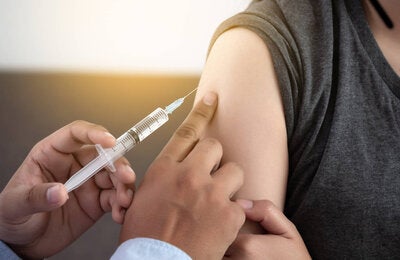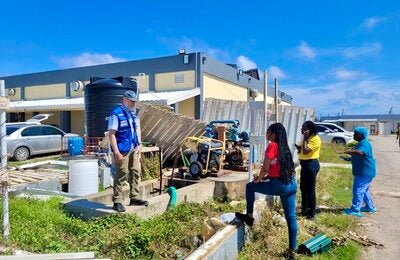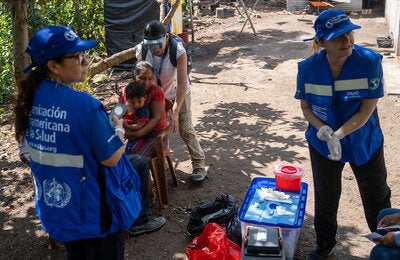
Suppression of COVID-19 in the region will continue to require a comprehensive response, pandemic update report notes
Washington, D.C. September 22, 2021 (PAHO) – In an update to its 59th Directing Council meeting of health ministers, the Pan American Health Organization (PAHO) said today that the course of the COVID-19 pandemic in the Americas remains “highly uncertain”. Surges in cases in the first half of 2021, coupled with vaccine hesitancy and shortages continue to pose a challenge to halting the spread of COVID-19 in the region.
The 28-page report outlined PAHO’s response to the pandemic since the first case was detected in the Americas in January 2020. To date, the region continues to be the hardest hit, with 88,207,746 confirmed cases and 2,175,310 deaths.
The report noted that the suppression of the COVID-19 in the Americas will continue to require a comprehensive response, with sustained health services network capacities, public health and social measures, targeted vaccination operations, and outbreak control actions, such as early detection, investigation and isolation of cases, and tracing and quarantine of contacts.
PAHO Director Dr. Carissa F. Etienne told the delegates, “We are in the fight of our lives against the SARS-CoV2 virus. We need to make sure that we win.” She added that financial resources to combat COVID-19 may be less next year. “We will not get out of this pandemic without solidarity,” she noted.
The availability of COVID-19 vaccines continues to be limited, the report said, and many countries in Latin America and the Caribbean face inequities in access. Vaccine hesitancy, it added, may further slow uptake by the population, or prevent full achievement of vaccination potential.
PAHO Health Emergencies Director Dr. Ciro Ugarte provided an update on the organization’s response. Since January 2020, he said, PAHO has provided 21.5 million COVD-19 PCR test to countries, along with 7.3 million rapid diagnostic tests, along with Personal Protective Equipment (PPE) to 35 countries, including 42 million masks.
Dr. Ugarte said “279 training sessions were provided on testing, tracking, care and other topics, along with 171 technical guidelines published.”
Emergency Medical Teams coordinated by PAHO have helped in the response, Dr. Ugarte added, providing more than 14,000 additional hospital beds, including 1,477 critical care beds to countries throughout the region.
“PAHO will continue to support countries in developing and adapting strategies for the continuity of priority public health programs and services, while responding to COVID-19,” he added.
Key challenges ahead, he noted, include maintaining essential health services, reaching priority groups with vaccines, adapting and expanding surveillance, improving clinical management of cases and of infection prevention and control in health facilities, as well as obtaining additional resources to buy vaccines, PPEs equipment, and diagnostic supplies.
Among the lessons learned, Dr. Ugarte said, “are that public health and social measures must continue even where acceptable vaccination coverage exists, and that continuous planning for responsive health care service delivery during COVID-19 surges remains critical for the medium/long term.”



